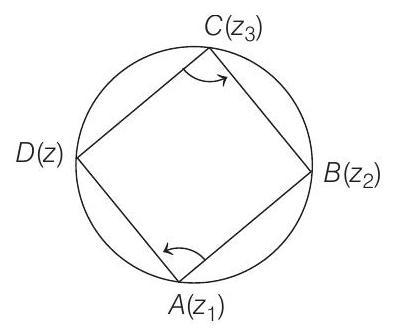Complex Numbers 3 Question 8
8. For a non-zero complex number
(a)
(b) The function
(c) For any two non-zero complex numbers
(d) For any three given distinct complex numbers
Show Answer
Answer:
Correct Answer: 8.
Solution:
- (a) Let
Now,
Since,
(b) We have,
This function is discontinuous at
(c) We have,
So, given expression is multiple of
(d) We have, arg
Thus, the points
Hence, it is a circle.







